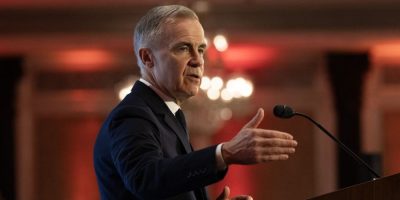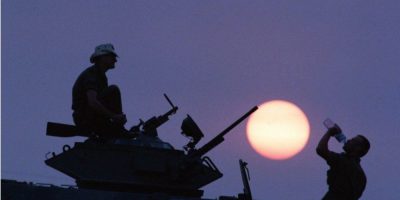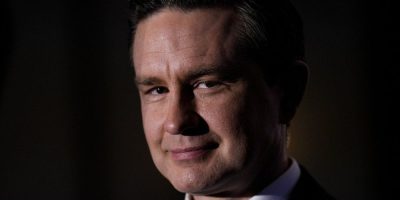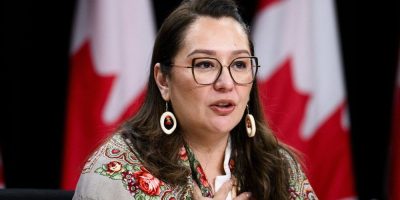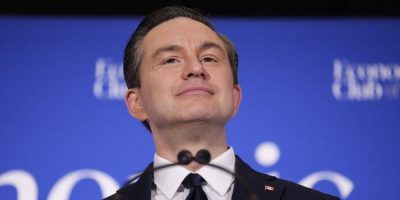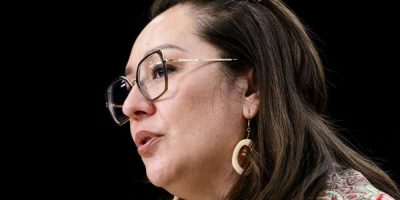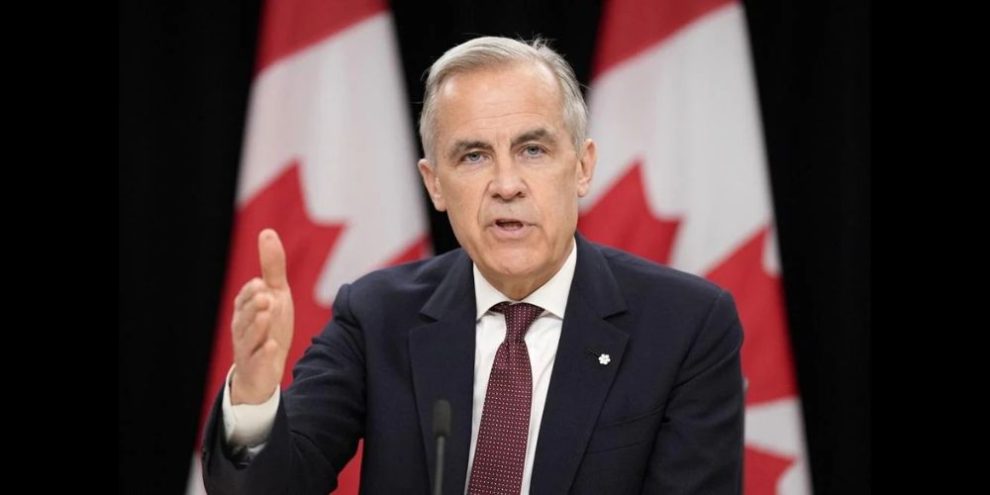
Prime Minister Mark Carney has many foreign policy issues on his plate — and they're not all about U.S. President Donald Trump.
Here are six of the key challenges Ottawa will be navigating in the coming months during a turbulent time in world politics.
Trump in Alberta for G7
In just six weeks, Carney will welcome his leading counterparts to Kananaskis, Alta., for the Group of Seven leaders' summit.
Trump is invited to attend, as are the leaders of France, Germany, Japan, the U.K. and Italy, as well as the European Union. The summit sees G7 leaders take stock of the world’s challenges and sign a communiqué that sets the tone for other industrialized democracies.
When Canada last hosted a G7 summit in 2018, Trump refused to sign the closing communiqué, stormed off early and called Carney's predecessor Justin Trudeau "very dishonest and weak" in a spat over steel and aluminum tariffs.
Ottawa is trying to keep Washington engaged in the G7. It put forward maritime security as a shared concern for countries sharing three oceans with Canada. Leaders at the summit are expected to discuss "shadow fleets" — vessels smuggling sanctioned goods — the recent rash of sabotage attacks on undersea cables, illegal fishing and biodiversity loss.
Canada must also decide which countries and institutions it will welcome as guests; South Africa is hosting the G20 summit in November and could be invited to Kananaskis. Carney already has invited Ukrainian President Volodymyr Zelenskyy.
This, and more headlines in our Daily Kickstart podcast
Defence deals with Europe
Carney is widely expected to attend the annual summit of the NATO military alliance, which starts June 24 in the Netherlands.
The meeting comes as Europeans accuse Trump of undermining the alliance by suggesting that the U.S. wouldn't defend countries that don't meet defence spending targets.
Canada has never met the NATO defence spending guideline — 2 per cent of gross domestic product — since the alliance agreed upon that goal in 2006.
The meeting also comes amid fears that Russia will acquire more territory in Ukraine and invade other countries like Latvia, where Canadian troops are serving as part of a mission aimed at deterring Russian aggression.
The European Union is leading an effort to boost defence spending and military industries in Europe, to make the continent less reliant on the U.S. Carney has said he wants to be part of this project, called ReArm Europe. He also has called Canada "the most European of non-European countries."
Relationship with China
During the campaign, Carney described China as "the biggest security threat to Canada," citing Beijing's tacit support for Russia's invasion of Ukraine, foreign interference and the Arctic.
China rejects all of these claims and says it wants to partner with Canada to stand up against American "bullying." Chinese officials have suggested the two countries could rally other nations to prevent Washington from undermining global rules.
Beijing has imposed tariffs in retaliation for Canada following the U.S. in restricting Chinese electric vehicles and steel. Those tariffs are mostly hurting farmers in Western Canada and premiers in the region have pushed Ottawa to do more to lift restrictions on canola and pork.
Still, China has displaced large amounts of American oil with imports of Canadian crude, which hit a historic high in March. While China is Canada's second-largest trading partner and says it can collaborate in areas like clean energy, Carney has signalled caution.
"We want to diversify with like-minded partners," he said in March. "The partners in Asia that share our values don’t include China."
Barrie's News Delivered To Your Inbox
By submitting this form, you are consenting to receive marketing emails from: Central Ontario Broadcasting, 431 Huronia Rd, Barrie, Ontario, CA, https://www.cobroadcasting.com. You can revoke your consent to receive emails at any time by using the SafeUnsubscribe® link, found at the bottom of every email. Emails are serviced by Constant Contact
Reviving ties with India
In late 2022, the Liberals made India a focus of their Indo-Pacific strategy, describing the country as a democratic nation with strong trade potential.
That all changed after the June 2023 assassination of Sikh activist Hardeep Singh Nijjar in British Columbia.
Within months, Trudeau accused India of involvement in Nijjar's death. Relations have been strained ever since, with the RCMP saying it has evidence that New Delhi is behind numerous crimes targeting Sikh-Canadians.
A year ago, India's foreign minister declared Canada to be "our biggest problem" and in October 2023 pointed the finger at the Liberal government, arguing Canada is enabling a separatist movement that calls for a Sikh homeland called Khalistan to be carved out of India.
Carney said during the election campaign he wants to pursue trade with India, adding it could play an outsized role in ending the trade wars.
"There are strains on that relationship that we didn't cause, to be clear. But there is a path forward to address those, with mutual respect," he said on April 26.
The government of Prime Minister Narendra Modi has long been aligned with Canada's Conservatives, though Modi was quick to congratulate Carney on his election win.
Expanding trade ties
Canada and the U.K. have been operating under a pared-down trade agreement since Brexit and talks on a full agreement have been suspended, largely over Canada's reluctance to open up its dairy sector and Britain's distaste for hormone-treated beef.
Canada's envoy to London Ralph Goodale told Politico recently that trade talks are unlikely to advance if Britain doesn't drop "unscientific" limits on beef or resolve the "Brexit screw-up" of failing to negotiate its own cheese import quota for Canada when it left the European Union.
A fresh approach might be coming this year. Goodale said in February he expects to be replaced this spring and Britain's high commissioner in Ottawa started his term three months ago.
Ottawa has long argued that Canadian businesses haven't taken advantage of trade deals Canada has signed with countries such as Chile and South Korea.
The global south
Promising to buck the trend of Western countries scaling back on foreign aid, Carney has vowed not to lower Canada's aid spending or development funding.
That promise comes as refugee camps run out of food aid and as United Nations agencies ponder mass layoffs.
"This is a time for Canada to lead … in ensuring that we play a role that Canada always has, which is to be generous and to be effective in our support of those who are most vulnerable around the world," Carney said.
It's not clear what Carney's approach to foreign aid might look like. Trudeau's government was criticized for releasing an Africa strategy years late, with zero new funding for initiatives intended to boost investment and trade with the booming continent.
Southeast Asian leaders, meanwhile, are wondering whether Carney will follow Trudeau's example by attending the annual summit of the ASEAN bloc, which declared Canada a strategic partner in 2023. The region has growing economies and an interest in Canadian commodities and nuclear energy.
The Middle East
Carney is widely expected to follow Trudeau's approach to the Israel-Hamas war, a policy Jewish, Muslim and Arab groups have all widely criticized as being vague. The war has led to large protests in Canada and prompted a rise in hate crimes.
The prime minister recently joined peers in criticizing Israel for blocking aid to Palestinians in Gaza, which the United Nations describes as "cruel collective punishment."
Carney said during the campaign that Canada must call out Iran for destabilizing the Middle East through proxies like Hamas.
This report by The Canadian Press was first published May 4, 2025.
